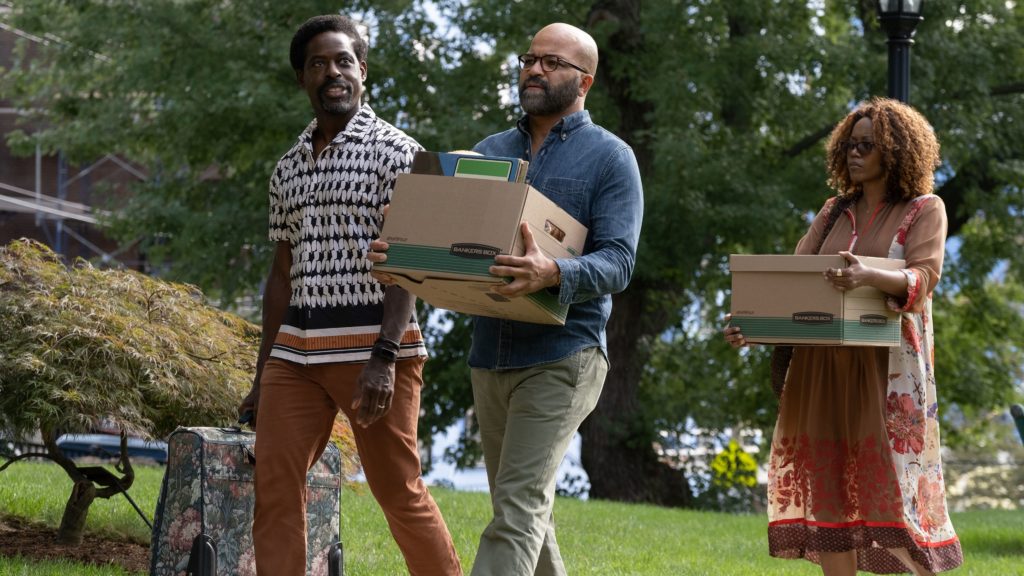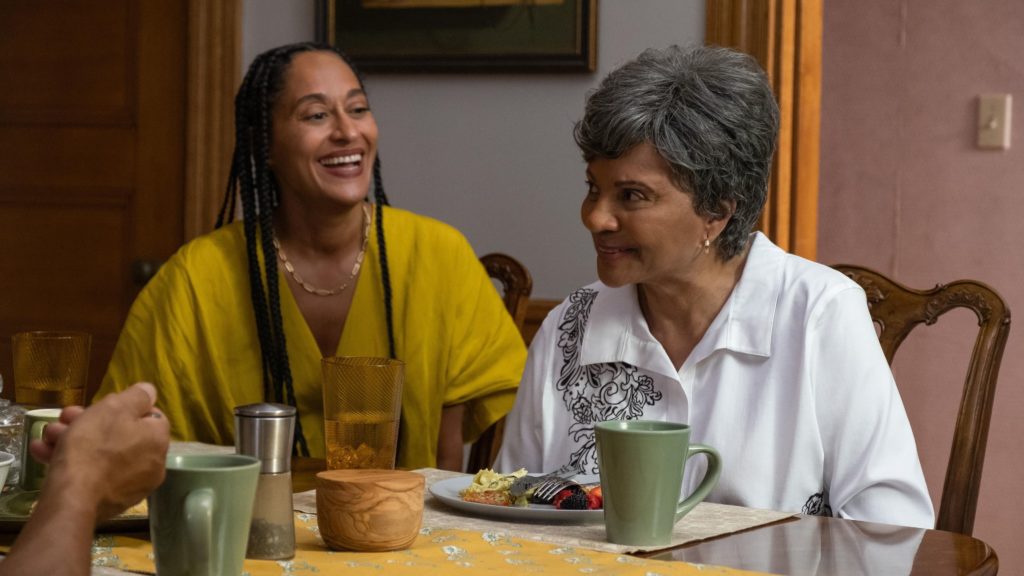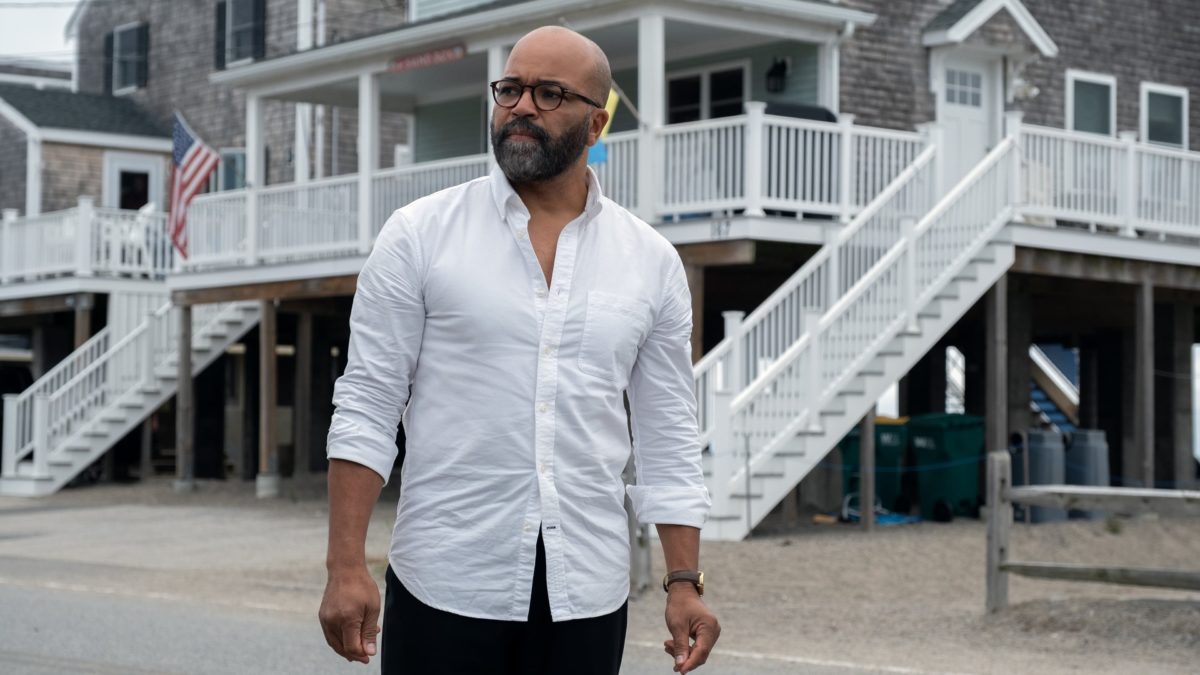The price is write
American Fiction, the debut film by Cord Jefferson, fills in one of my favorite niches, one that could always use more films: Modestly smart dramedies about the modestly interesting interior lives of modestly smart people. It’s centered around a neurotic and slightly off-putting but ultimately charming protagonist. It’s essentially an early Woody Allen movie but with a Black hero instead of a Jewish one.
The film, adapted from the 2001 novel Erasure by Percival Everett, has a fun, satirical premise: a Black academic named Monk Ellison (Jeffrey Wright) gets so frustrated by the popularity of works by Black authors that pander to white audiences with stereotypes of poverty and crime that he creates an absurdly over-the-top parody, only for it to treated as genuine and become a bestseller.
But this premise is also not really what American Fiction is about. It’s just a narrative backbone. What the movie really is about instead is Ellison’s depression and mounting grief with the many losses in his life. Ellison’s darkness is matched against his attempt to find some connection and meaning in a world that feels increasingly empty. And yet as I write it out, I can also that that is not quite what American Fiction is about. It is not so dark as that pitch makes it seem, so I’m not sure the best way to classify it: fascinating portrait, intriguing scenario.
American Fiction has a remarkably light touch that makes it easy to like: It is not a nasty satire; moreso exasperated. Jefferson cares more about a compelling, character-rich emotional landscape than drilling home a point about race. The film eschews broad punchlines and wackiness in favor of light dramedy. But that doesn’t stop it from being a very funny movie, one of the funniest of the year. American Fiction never goes more than a scene or two without a great joke. In all, it’s a marvelous balancing act of tones, a terrific piece of comic finesse that would have crashed and burned in most hands.

The cast does a lot to carry the material: I’ve never liked Wright more than this — his exhausted disdain for a world that lets him down again and again is hysterical every time. I’m glad he’s up for the Oscar — this is one of my favorite performances of the year. He’s surrounded by a phenomenal ensemble: Erika Alexander plays his new girlfriend with warmth; Leslie Uggams is perfectly acerbic as his dementia-ridden mom; and Tracee Ellis Ross is mind-blowingly good in a way-too-small role as his sister. (She has about 10 total lines, and every single one is memorable.) I’m also very fond of Sterling K. Brown’s turn as Monk’s gay, alcoholic brother, who not only displays some hilarious physical comedy but gets to deliver the film’s key dramatic monologue towards the end of the movie.
Generating a lot of laughs will cover up any movie’s flaws. American Fiction’s biggest problem is a byproduct of its most appealing traits: By keeping the tone loose rather than incisive, a shagginess emerges. There’s a distinct lack of punch in its storytelling, which may be a bummer if you’re looking for a great piece of racial satire. I dig this breeziness, though I do think American Fiction pulls a few punches it should have swung with. The story pivots away from some of the richest points of conflict just as they start to get good, like the simmering resentment between Monk and his girlfriend Coraline (Alexander) as he grows more successful — she disappears right when their arguments start heating up and piercing to the heart of the issues of Black representation that Monk is so worked up about; whether he’s overreacting or justified is left a bit too unexamined. The story also holds back on the dark irony and Monk’s self-loathing of the film’s central gag: Ellison having to adjudicate his own pseudonymous work, which he made intentionally bad, as a judge for a literary award that’s more prestigious than anything he’s won with his serious work.
The screwiest part of American Fiction is its ending, which is the only point of the film that stumbles over its own cleverness in search of a point to make. The film’s reality breaks down with a time-rewind twist that gives us competing versions of reality. If this were really an early Woody Allen film, the ending would have been a grand slam gag. Here, it’s a little soft and sloppy.

One film that American Fiction made me think of frequently is Get Out: Both films take aim at the casual, unconscious racism of liberal, well-educated white people. (And if I may be cynical for a moment, I suspect some of the praise heaped upon both films comes from white critics who, consciously or subconsciously, want to prove they’re not “one of them.”)
The actual racial commentary of the film is, frankly, underwhelming and outdated: I’m not sure exactly what targets Jefferson had in mind for his takedown of the literary industry, but they were probably big in the ’90s. (If the movie had been about film instead of books, on the other hand, it would have clicked a little more: stories about poor Black people still get a lot of award buzz.) At a minimum, American Fiction feels like it comes from a pre-2020 America. A post-George Floyd version of this story should have targeted the white-oriented “anti-racism” books by Black authors that clogged bestseller lists during the pandemic. But, crucially — unlike some less successful satire movies from the past few years, including Not Okay and The Blackening — American Fiction functions just fine in spite of its hit-and-miss satire. It’s a funny film and charming dramedy even without its racial content, and so it isn’t dependent upon the satire to work.
American Fiction is a delightful film and one of the best directorial debuts of 2023. At first blush, I don’t think it’s quite special enough to earn that Best Picture nomination, but it honestly ranks among the year’s top ten films measured purely in terms of my enjoyment, so maybe it actually does. With a cast and comic touch this good, I can’t wait to see what Jefferson does next.
Is It Good?
Very Good (6/8)
Awards, Honors, & Rankings
- The B.A.D.S. (2023) - Best Debut Director (Nominee)
- The B.A.D.S. (2023) - Best Actor (Jeffrey Wright) (Nominee)
Dan is the founder and head critic of The Goods. Follow Dan on Letterboxd. Join the Discord for updates and discussion.

